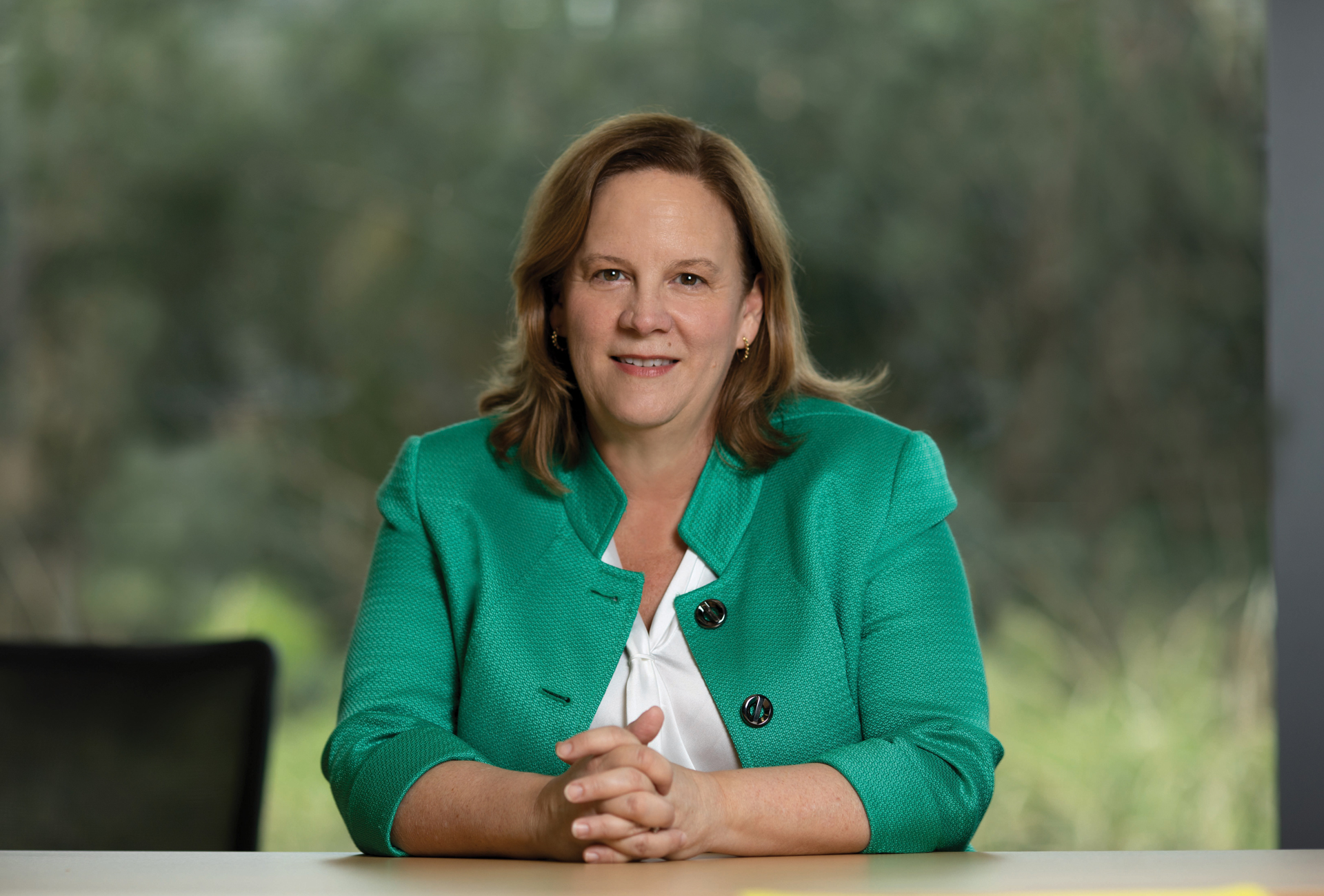Ann Huff Stevens will begin as dean of the College of Liberal Arts on July 15, 2019. Stevens comes from the University of California, Davis, and is a Texas native with roots in Corpus Christi. She is a professor of economics who has served in a variety of leadership roles, including chair of the Department of Economics, chair of the Economics Graduate Program, interim dean of the Graduate School of Management, and founding director of the Center for Poverty Research. She earned an undergraduate degree from American University and a doctorate in economics from the University of Michigan. Prior to her work at UC Davis, she served as a faculty member at Rutgers University and Yale University.
The value of a liberal arts education is often questioned in our society. How do you respond to skeptics?
First, for individuals educated at a top university like UT, there’s abundant evidence that liberal arts graduates are successful in the labor market, despite what some skeptics claim. Second, beyond the narrow economic benefits to individuals, liberal arts education exposes students to a wide variety of literature, history, culture and types of analysis. At its best, it exposes students to a variety of ways of thinking and learning that help them understand and contribute to society.
What do you hope liberal arts students get out of their education, and how can the liberal arts also benefit non-majors?
I really want students to be comfortable with complexity, with having to ponder different approaches to solving problems, and with taking on new types of issues and challenges. For non-majors, the liberal arts can help broaden their education and let them think about new problems, or about old problems in new ways. This makes for graduates and citizens who can adapt to new challenges not just at work, but in their communities and in the world.
Why are the liberal arts important to Texas communities and to the lives of Texans?
Texas is a diverse state with a growing, dynamic economy and a rich history. Liberal arts scholarship and education prepares students to understand and learn from history and from a variety of cultures, and prepares them to be flexible thinkers. A strong future for the state requires creative, flexible citizens and workers, and a vibrant set of liberal arts programs at UT has to be part of that future.
How did growing up a Texan inform your life?
Texans have always had their own unique ways and identity. When I first left Texas to attend college on the East Coast, to my surprise, as a Texan I was suddenly a bit exotic! That experience reminds me that family and geography and culture can affect us in ways we don’t really realize until we step away.
How did you first become interested in researching the connections between poverty and health?
Microeconomists spend a lot of time trying to disentangle cause and effect. The relationship between poverty and health is a really challenging example of a case where cause and effect are difficult to separately identify. Poverty and related conditions can cause poor health, but poor health also reduces earnings opportunities. So, this area is both extremely important to policy discussions and a classic, and challenging, problem in economics.
What is your proudest accomplishment?
Conceiving of and launching the Center for Poverty Research at UC Davis. It taught me how to really learn from other disciplines and work across different fields. That exposure made my own research better and, I think, offered the same advantage to lots of my colleagues and students. The community of faculty and students at the center will, I know, continue to produce great research and mentoring in years to come.
What are the essentials for a dean to be successful?
That’s probably a pretty long list! I’d start, though, with a combination of passion for thinking about the big picture to advance the college’s mission, and an ability to attend to the details of advancing that mission every day. It’s also essential for a dean to really enjoy interacting with all parts of the college community — faculty, staff, alumni and students.
How do you relax?
I love to cook, and it’s relaxing because there’s a clear process with a definite outcome at the end — that doesn’t happen every day as a researcher. And, then I get to enjoy the food with family and friends. I also love reading about, and talking, and debating about politics and policy. I joke that one day I’d like to have a reality show where I cook a meal, and as I do it I give my thoughts on the week’s politics. Not sure anyone would want to watch, but I’d have a great time filming it.
